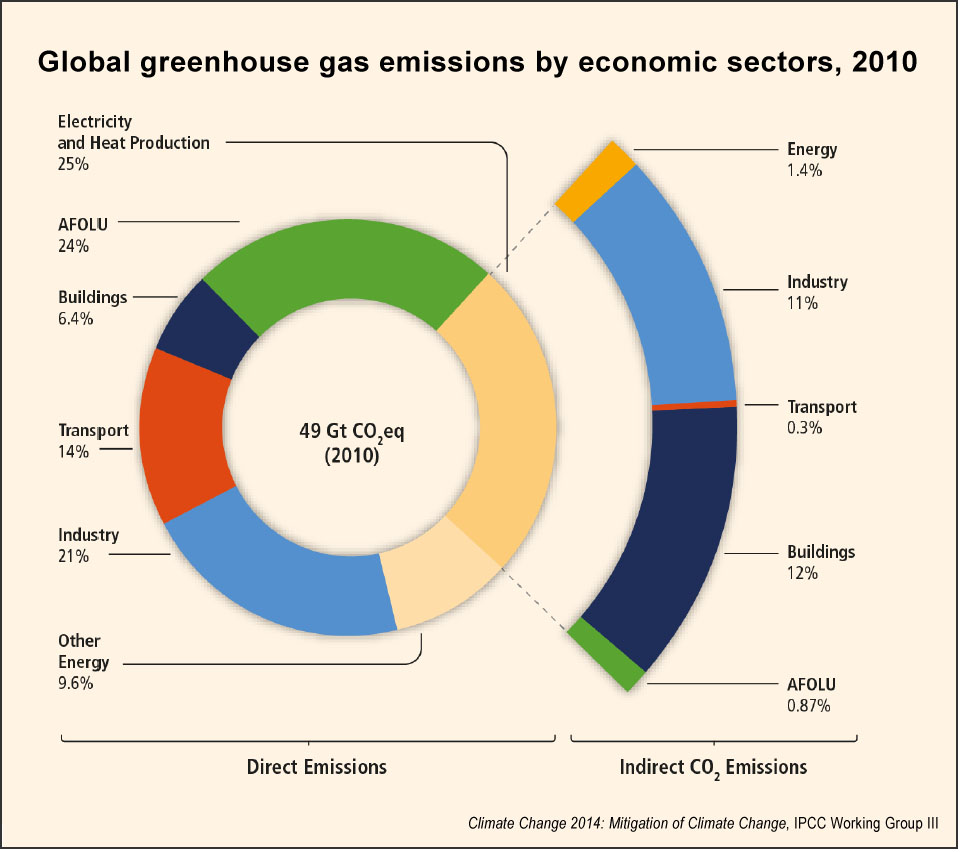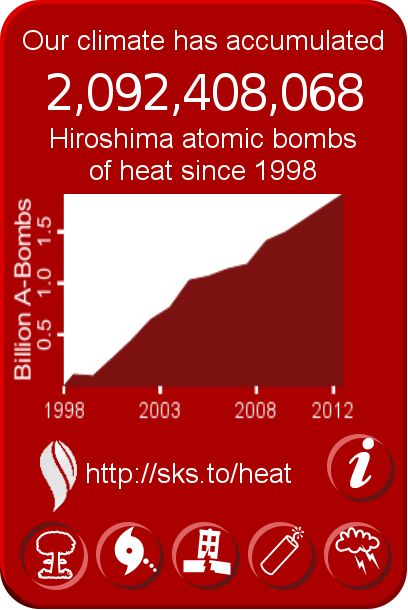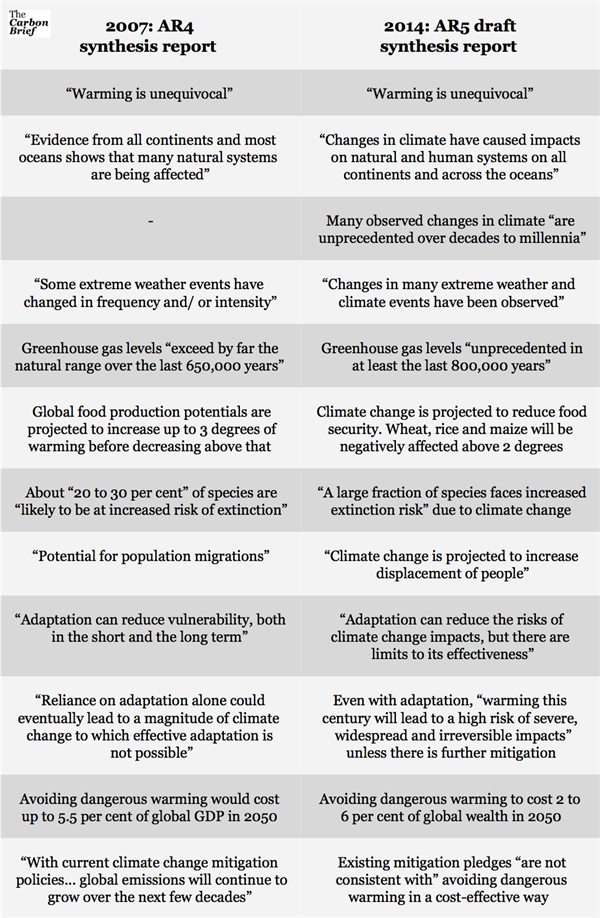Here are the main findings from the IPCC's WGIII report, taken from the report itself, the Summary for Policymakers (SPM), and the Technical Summary:
1) Serious emissions cuts haven’t really started yet - greenhouse gases emitted still rising
"Total anthropogenic GHG [greenhouse gas] emissions have continued to increase over 1970 to 2010 with larger absolute decadal increases toward the end of this period (high confidence). Despite a growing number of climate change mitigation policies, annual GHG emissions grew on average by 1.0 gigatonne carbon dioxide equivalent (GtCO2eq) (2.2%) per year from 2000 to 2010 compared to 0.4 GtCO2eq (1.3%) per year from 1970 to 2000 (Figure SPM.1). Total anthropogenic GHG emissions were the highest in human history from 2000 to 2010 and reached 49 (±4.5) GtCO2eq/yr in 2010. The global economic crisis 2007/2008 only temporarily reduced emissions. [1.3, 5.2, 13.3, 15.2.2, Box TS.5, Figure 15.1] [SPM Page 5]
2) If we carry on as we are it will result in 3.7 to 4.8 degrees of warming by the end of the century
“Without additional efforts to reduce GHG emissions beyond those in place today, emissions growth is expected to persist driven by growth in global population and economic activities. Baseline scenarios, those without additional mitigation, result in global mean surface temperature increases in 2100 from 3.7 to 4.8°C compared to pre‐industrial levels (median values; the range is 13 2.5°C to 7.8°C when including climate uncertainty, see Table SPM.1).” [SPM page 8]
3) It is not too late to limit warming to less than 2°C – or maybe even 1.5°C
greenpeace






 In 85 years human beings may well have phased themselves out or at least down to a sustainable population level of about one billion. That should fit the down side of the oil production curve quite nicely. It only remains to be seen which line on the plot drives the other.
In 85 years human beings may well have phased themselves out or at least down to a sustainable population level of about one billion. That should fit the down side of the oil production curve quite nicely. It only remains to be seen which line on the plot drives the other.

